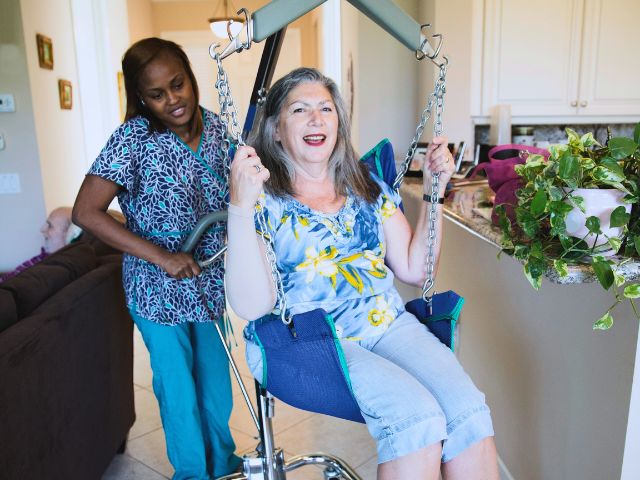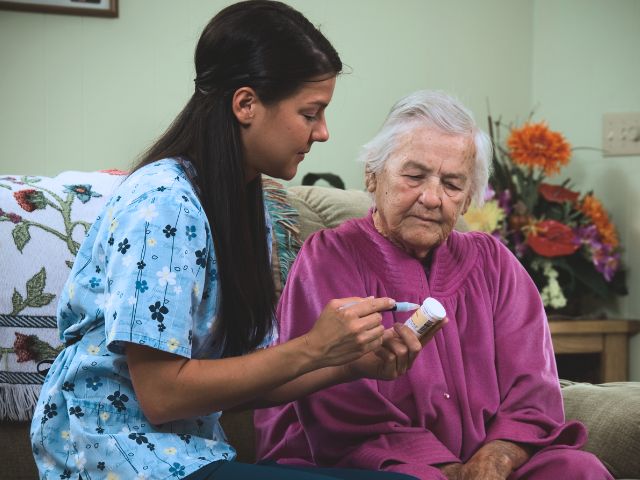Pros and Cons of this Specialty
Some pros to working in this specialty are that nurses enjoy working autonomously and are in charge of their schedules. This means the home health nurse schedules their patients and the route they will drive. Nurses must be organized and have good time management skills.
If you love teaching, home health nursing may be a great fit for you. Nurses in this specialty teach patients how to manage their medications, their drains, and how to manage chronic diseases. Nurses want to empower patients to take charge of their own health and will give patients tools to do this.
Another pro to home health nursing is that it is generally not as physically demanding as a traditional hospital nursing job. Home health nurses will be able to take breaks and sit while driving to the next patient. Nurses will be able to take mental and physical breaks like listening to music and working on documentation in their cars or at a pit stop.
Some cons to this specialty are that there is a lot of documentation. Depending on the agency, documentation may be electronic –entered into a tablet or laptop –or can be written on paper and submitted to the agency’s office. Nurses should be prepared for this. Nurses will also learn about a specific set of assessment questions called OASIS. These assessment questions can be tedious to learn at first. With anything, it takes practice, and agencies train nurses on these assessment requirements.
Another item to keep in mind is that patients must meet specific eligibility rules to be eligible to receive home care services. Medicare is the largest payer for home healthcare, and nurses in this specialty must understand the requirements that patients must meet. Again, nurses are trained on the rules, but it is different from hospital nursing.
Home health nurses need their own vehicles and are expected to drive a lot. Their vehicles should be in good condition with up-to-date insurance. Nurses will also be expected to drive in inclement weather and should keep emergency supplies with them. Did we mention that nurses keep their medical supplies in their cars? Organization of all the stuff is key!









